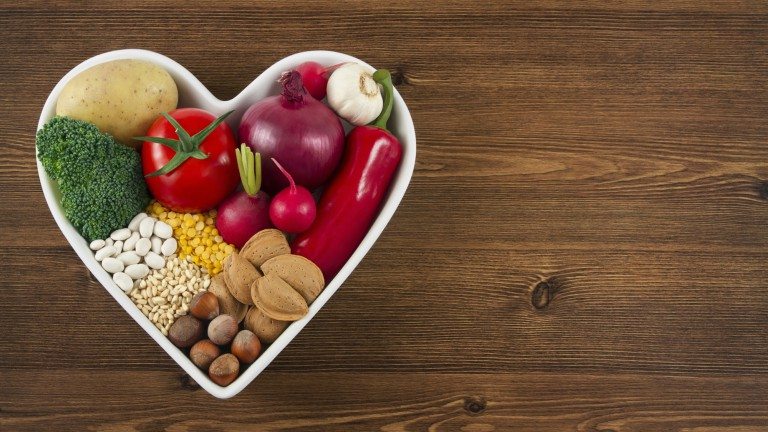We are all guilty of over-indulging at Christmas, because well, it’s Christmas. But when the heartburn and serious gas sets in we often instantly regret that extra mince pie. Rob Hobson has 13 things that help
Up to two fifths of us suffer with indigestion regularly and during the Christmas festivities, even those that are rarely plagued with it might experience signs of reflux, heartburn, bloating or belching. It is the season of overindulgence after all. But what indigestion remedies can help or even prevent the signs of over-indulgence at Christmas?
1. Prepare yourself with THE herb for over-indulgence
Prepare your body for the onslaught of different foods and drinks over the festive season with a course of milk thistle, says Dr Sarah Brewer, medical nutritionist and GP. Recent research found out that on average we are likely to eat nearly 19,381 extra calories in the month of December alone so we need to help our bodies deal with all this extra food and alcohol.
we are likely to eat nearly 19,381 extra calories in the month of December alone
The active ingredient in milk thistle is known as silymarin, a chemical extracted from the seeds, which has been shown to have benefits for the liver, nutritionist Robert Hobson explains. Silymarin is a group of flavonoids (silibinin, silidianin, and silicristin), thought to help repair liver cells damaged by alcohol and other toxic substances. It’s been shown in many laboratory studies to protect liver tissues from poisons and the effects of disease, including some of the changes that lead to cirrhosis. This may be due to its specific antioxidant properties, local anti-inflammatory activity, and toxin-blocking properties.
What can it help with? The results of clinical trials show that milk thistle may be beneficial for people with liver disease and those with drug and alcohol problems. Other research suggests that it might help the liver after exposure to chemical pollutants, drugs and some medicines. Doctors in Europe also prescribe it for the after-effects of chemotherapy and other powerful medical treatments because of its powerful liver-assisting properties. Milk thistle might also be beneficial if included in treatment plans for the long-term treatment of Type 2 diabetes.
If you’re using milk thistle for indigestion and over-indulgence this Christmas, evidence suggests that silymarin-rich milk thistle extracts can help after a period of over-indulgence in rich fatty foods or alcohol.
Also, if you’re prone to gallstones or bile problems then milk thistle may help in your management plan. You may already be cutting back on fats and alcohol, and supplementing with it may help you cope better with these and other dietary factors.
Any side effects? ‘Milk thistle is an extremely safe herb,’ says Robert Hobson. ‘Evidence suggests that it is safe in pregnancy and breastfeeding but it is always advisable to take expert advice before taking it. There is a small chance that it might interact with other medicines, increasing their effect so it is wise to keep an eye out for this by talking to your doctor before taking it. Otherwise this there is no restriction on long-term use’.
How should I take it? Take enough tablets per day to deliver 50-200 mg silymarin especially during the two weeks of the festive period to help your liver at this time. The benefits usually start to be felt after two weeks although long-term treatment is often needed for chronic conditions.
When you’re buying, look for products registered under the Traditional Herbal Registration (THR) scheme. We like Healthspan’s Milk Thistle £13.95 for 30 capsules
2. Eat mindfully
Eat your food slowly and chew your food properly (this can also help with symptoms bloating). Eating quickly can encourage excess air onto the stomach, which can cause bloating while sitting down to eat can help as eating on the run can encourage indigestion.
3. Get those digestive greens
Avoid eating large servings of food and opt for smaller servings to put less pressure on the gut and prevent the overproduction of stomach acid. Try and avoid foods high in saturated fat so forego highly processed foods as these are known to increase the risk of indigestion, bloating, heartburn and reflux.
Having a salad of bitter greens before a rich meal can help your body digest the onslaught of fat and salt!
Opt for more green foods to help encourage the production of enzymes to and bile juices to aid digestion. Having a salad of bitter greens before a rich meal can help your body digest the onslaught of fat and salt as the chewing process helps encourage the body to produce chemicals that aid digestion (so chew well!). Opt for dips such as hummus with raw vegetables, roots and greens if they are available such as beans and tenderstem broccoli, celery and cucumbers which have a high-water content and parsley which is renowned for its digestive properties.
4. Don’t eat late
Stop eating right before you go to bed ideally three to four hours prior. ‘Lying down with a full stomach can increase the risk of acid forcing its way up into you oesophagus, says Hobson. ‘If you go to bed too soon after eating, try propping your head and shoulders up with a few pillows to create a slight slope that may help to prevent acid moving up into your oesophagus.’ (see below)
5. Sleep on your side
A study in the Journal of Clinical Gastroenterology found that sleeping on your left side is the best way to avoid heartburn at night while sleeping on your right might aggravate it. It’s not clear why but theories suggest left-side sleeping keeps the junction between stomach and esophagus above the level of gastric acid while right side sleeping relaxes the lower esophageal sphincter, between the stomach and the esophagus.
6. Get moving
Your digestive systems needs you to be active it doesn’t care how you do it but it’s vital.
Exercise can help to alleviate stomach pressure from bloating and gas as well as ease constipation by easing waste from the body. Exercise can also soothe anxiety that is typical with a nervous stomach and can also reduce the likelihood of (GERD) by helping to maintain a healthy weight (risk factor for reflux). But be careful, intense exercise can cause a flare up of reflux. Try waiting a while between meals and exercise and never train on a full stomach.
7. Have pineapple for dessert (or starters)
Certain foods may help with digestion such as papaya, which contains papain or pineapple, which contains bromelain that both help the body digest proteins. Try these fruits as a starter or dessert to a meal especially if you’ve indulged in heavy proteins such as pork or lamb. Including bitter greens and artichoke with a meal can help with bile flow that may also help to ease heartburn and process fats more easily (see above).
8. Try globe artichoke
The globe artichoke, a vegetable belonging to the thistle family, is both fat and cholesterol free and is thought to be particularly beneficial for our liver. Derived from the leaf of the artichoke plant it contains a compound called cynarin. Like milk thistle, it can also used to protect the liver from harmful effects of alcohol, could help rid the liver of cholesterol and is also shown in research to help bloating
Bile, which is produced by the liver and stored in the gall bladder, helps with detoxification as well as the absorption of fats in the small intestine. A decrease in bile flow can lead to a number of digestive disorders as well as more serious liver diseases, explains Dr Brewer. ‘Cynarin helps to increase bile flow,’ she says. ‘Also found in artichokes is the compound flavonoid silymarin, which helps to protect the liver, after a fatty meal especially, and reduces the process of lipid peroxidation’. Try Healthspan’s Artichoke Extract 120 tablets £9.45
9. Get herbal help
Try sipping chamomile or ginger tea after heavy meals as these can help to soothe inflamed gastrointestinal tissue and may help to reduce oesphageal spasms. Or try one of our favourite digestive teas, Pukka After Dinner £2.49 (from supermarkets or pukkaherbs.com) a seriously delicious blend of tummy-loving organic digestif spices and herbs such as sweet fennel, chicory and cardamom.
10. Chew gum after eating
A study in 2001 by researchers from Wake Forest University in North Carolina found that chewing gum increased esophageal and pharyngeal pH substances which in turn reduced the effects of heartburn. ‘Chewing gum pushes back fluids and floods the esophagus with alkaline saliva which neutralizes the acids that cause the burning associated with indigestion,’ says Hobson.
11. Raise your bed
According to the NHS, raising the head of your bed can help with indigestion: ‘When you go to bed, prop your head and shoulders up with a couple of pillows, or raise the head of your bed by a few inches by putting something underneath the mattress. The slight slope should help prevent stomach acid moving up into your oesophagus while you’re asleep.’
12. De-stress
Stress and anxiety can sometimes lead to symptoms of indigestion, says Dr Megan Arroll, a psychologist specialising in the link between the mind and your health. ‘Heightened stress and anxiety at this time of year can also result in indigestion, often caused by stomach acid. If you suffer from acid reflux, indigestion may be particularly problematic during the holidays. To combat this, breathe deeply and slowly through your diaphragm in order to trigger the parasympathetic nervous system.’
Lenghthening your exhalations can help the process of relaxation almost instantly. Try breathing in for four counts and out for 6-8 counts. The exhalation of carbon dioxide has a direct calming effect on the mind. Do this ten times during times of stress or before moments you know you might be over-indulging to calm the nervous system and aid digestion.
13. Don’t take sudden heartburn for granted
Finally, If your heartburn is severe and new and accompanied by any sort of weakness and sudden fatigue you should seek help as many women miss the signs of heart attacks because these often masquerade as heartburn or indigestion. The subject was the focus of a national campaign by the British Heart Foundation (BHF) earlier this year. Indeed, if you get symptoms such as indigestion out of the blue – along with (or not) others such as pressure or pain in the chest, neck and arms, breathlessness, nausea, sweating and pallor – it’s reasonable to call 999, says Dr Mike Knapton, Assistant Medical Director of the BHF. ‘No one will criticise you for misusing the health service because the sooner you get treatment, the less damage to the heart muscle there will be. This is crucial.’ Moreover, he says, diagnosis is straightforward and involves an electrocardiogram (ECG) which is painless and a blood test called a troponin test. Troponin is a protein not normally found in the blood, which when detected can indicate damage to the heart muscle the common cause of which is heart attack, explains Dr Knapton.
MORE IN THE HEALTHISTA PARTY SERIES:
VIDEO: What to eat when you’re drunk
9 best products for tired skin
Like this article? Sign up to our newsletter to get more articles like this delivered straight to your inbox.


























































